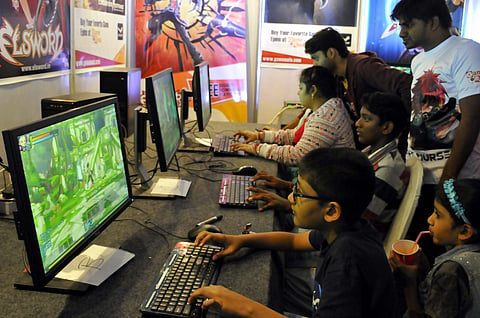Video games associated with better cognitive performance in children: Study reveals
A new study has found that playing video games may be associated with better cognitive performance in children, contrary to popular belief that video games can lead to mental health problems. A study published in JAMA Network Open, a monthly open-access medical journal published by the American Medical Association covering all aspects of the biomedical sciences, found that children who reported over three hours of playing video games per day performed better on cognitive skills tests involving impulse control and working memory compared to children who have never played video games, as reported by IANS.
"This study adds to our growing understanding of the associations between playing video games and brain development," said researcher Nora Volkow, from the National Institute on Drug Abuse (NIDA). "Numerous studies have linked video gaming to behaviour and mental health problems. This study suggests that there may also be cognitive benefits associated with this popular pastime, which are worthy of further investigation," Volkow added, stated the report.
The team that did the study analysed data obtained from children between the ages of 9 and 10. Nearly 2,000 participants were observed and the research team examined survey, cognitive and brain imaging. The children were separated into two groups, those who reported playing no video games and children who reported playing video games for three hours or more per day, as reported by IANS. For each group, the research team evaluated the performance of children on two tasks that reflected their ability to memorise information and control impulsive behaviour. The brain activity of these children was also analysed while the tasks were being performed by the subjects.
It resulted that the children who spend time playing video games for three or more hours per day were faster and more accurate in solving the tasks, while the other group of children was not as fast and accurate, stated the report. The difference in cognitive function observed between the two groups was accompanied by differences in brain activity was also observed. Functional MRI brain imaging analyses found that children who played video games for three or more hours per day showed higher brain activity in regions of the brain associated with attention and memory than those who never played, as reported by IANS.
The study also concluded that children who play video games for three hours or more per day showed more brain activity in the frontal brain regions that are associated with cognitively demanding tasks. An earlier study reported that video games can precipitate life-threatening cardiac arrhythmias in susceptible children whose predisposition may have been previously unrecognised.


